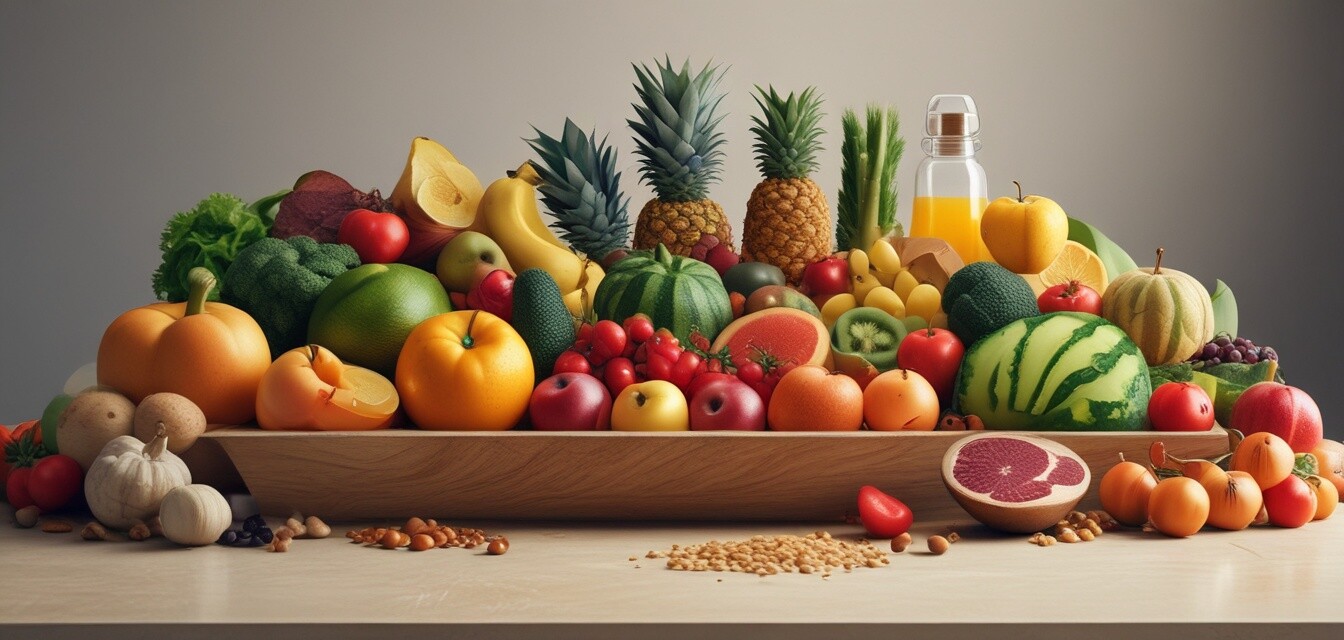
Tips for Eating Well While on a Prenatal Vitamin Regimen
Key Takeaways
- Prioritize a well-balanced diet alongside prenatal vitamins.
- Include a variety of nutrients from different food sources.
- Stay hydrated for optimal health during pregnancy.
- Consider your dietary restrictions when choosing foods.
Maintaining balanced nutrition during pregnancy is essential for expecting mothers. While taking prenatal vitamins is important to fill in nutritional gaps, it is equally crucial to pay attention to your diet. In this article, we will provide practical tips for ensuring that you are eating well while on a prenatal vitamin regimen, helping you and your baby to thrive.
Understanding the Role of Prenatal Vitamins
Prenatal vitamins are designed to provide essential nutrients that support both the mother's health and the baby’s development. However, they are not a substitute for a balanced diet. Here are the critical nutrients commonly found in prenatal vitamins:
| Nutrient | Importance | Sources in Food |
|---|---|---|
| Folic Acid | Helps prevent neural tube defects | Leafy greens, beans, citrus fruits |
| Iron | Supports increased blood volume | Lean meats, spinach, lentils |
| Calcium | Builds strong bones and teeth | Dairy products, nuts, fortified plant milks |
| DHA | Crucial for brain and eye development | Fish, fish oil, algae supplements |
Tips for Balanced Nutrition
1. Include a Variety of Food Groups
Make it a goal to incorporate different food groups into your meals. Diversifying your diet ensures you are getting a range of nutrients. Here’s how you can structure your meals:
- Fruits and Vegetables: Aim for a colorful plate, including leafy greens, bright peppers, and rich berries.
- Whole Grains: Choose whole-grain bread, brown rice, and oats for added fiber and nutrients.
- Protein: Opt for lean proteins such as chicken, beans, tofu, and eggs.
- Dairy or Alternatives: Include yogurt, milk, or fortified plant-based alternatives for calcium.
2. Stay Hydrated
Water is vital during pregnancy. Aim to drink at least 8-10 cups of fluids a day. This helps with digestion, nutrient absorption, and overall health. Consider:
- Carrying a reusable water bottle.
- Infusing water with fruits for added flavor.
- Choosing hydrating foods like cucumbers, celery, and watermelon.
3. Manage Cravings Wisely
Cravings are normal during pregnancy. Instead of indulging in junk food, think about healthier alternatives:
- If craving sweets, choose fruit or yogurt.
- If craving chips, try air-popped popcorn or whole grain crackers.
4. Consider Dietary Restrictions
If you have allergies or dietary restrictions, it’s essential to find alternative sources of necessary nutrients:
- For gluten intolerance, seek certified gluten-free vitamins and whole gluten-free grains.
- For vegan diets, ensure you include adequate sources of DHA and protein from plant-based options.
5. Plan Your Meals
Meal prepping can save time and ensure you have healthy options available:
- Prepare large batches of healthy meals to freeze for later.
- Create a weekly meal plan to help balance nutrition.
Shopping for Nutrient-Dense Foods
When shopping, focus on selecting whole, nutrient-dense foods rather than processed options. Here are some tips:
- Examine food labels for added sugars and artificial ingredients.
- Choose organic options when possible to reduce pesticide exposure.
- Shop around the perimeter of the grocery store, where fresh produce and meats are typically located.
Supplementation for Specific Needs
If your pregnancy poses specific dietary needs, consider these suggestions:
- Consult with a healthcare professional if you have questions about additional supplements.
- Investigate subscription-based vitamin services for convenience and tailored nutrition.
Conclusion
Eating well while taking prenatal vitamins is crucial for the health of both mother and baby. By focusing on a varied diet rich in nutrients, staying hydrated, managing cravings, and planning meals effectively, you can make informed choices that promote a healthy pregnancy. Don’t hesitate to explore more insights on healthy pregnancy tips to empower your journey.
Pros
- Easy ways to integrate nutrition into daily life.
- Holistic approach to prenatal health.
- Promotes healthy eating habits.
Cons
- Requires planning and effort.
- May need adjustments based on personal preferences.
